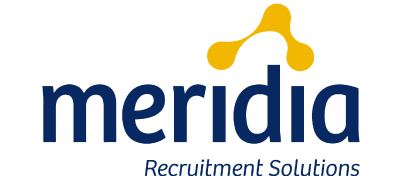
Smart, Not Scripted: The Dos and Don’ts of Using AI to Support Your Job Search and Interview Strategy
From resume writing to interview prep, AI tools have become widely accessible, and increasingly tempting for job seekers to rely on. With just a few clicks, you can generate a tailored cover letter, receive instant feedback on your LinkedIn profile, or rehearse common interview questions with a chatbot.
While AI can be a powerful ally in your job search, it also comes with limitations and risks. When used without intention or oversight, it can dilute your voice, introduce inaccuracies, or raise red flags with hiring teams.
As recruiters and talent advisors, we’re seeing how candidates are using these tools in real time, and where things can go wrong. Here’s how to strike the right balance between getting AI support and staying true to what sets you apart.
1) Using AI to support job search strategy
Before applying for a job, it’s important to consider what you really want in your next role. AI can be a valuable tool for expanding your career thinking. Use it to explore new career paths, research companies that align with your values, or summarize recent industry trends related to the roles you’re targeting. These insights can help you make more informed decisions — and speak with greater confidence in interviews about why a particular opportunity resonates with you.
2) Know What AI Can (and Can’t) Do
AI can be incredibly helpful in organizing your job search. From summarizing a job posting into key requirements to gain a better understanding of the role, to drafting an initial resume outline, these tools can save you time and help you focus. But AI doesn’t know you. It doesn’t understand the nuance of your experience, your values, or what motivates you.
That’s why the first “do” is this: use AI to support your process, not define your story. Let it help with structure and suggestions but always layer in your own perspective.

"AI can give you a head start, but it shouldn’t be your final draft. The strongest applications still come from a place of authenticity. Use AI to stimulate your thinking, not replace it."
- Jamie Grant - Partner, Meridia
3) Review for Accuracy and Integrity
Another potential pitfall? Accuracy. AI-generated content can occasionally make assumptions, combine ideas incorrectly, or insert details that weren’t part of your experience, especially when used to generate full resumes or bios.
Always fact-check anything AI helps you create. Be especially cautious with professional summaries, qualifications, and technical skills. Embellishments can be unintentional, but they still reflect on your credibility.
Even your tone matters. If AI’s language doesn’t reflect your natural communication style, it can raise questions about consistency when you move from written application to live conversation.

"Credibility is everything in a job search. Even well-meaning tools can introduce errors. Your best strategy is to treat AI like a first draft and research support — and then make significant edits."
- Austin McLennan, BA, CPHR - Sr. Consultant, Meridia
4) Personalize, Always
A tool can’t tell your story – only you can. Whether you're writing a cover letter, reaching out to a potential connection on LinkedIn, or preparing for an interview, the human element is still crucial.
If you use AI to get started, take time to personalize the message. Add specific examples, mention shared values, and show you’ve done your research. That’s what makes your application stand out.
Think of AI as the assistant — not the author.
5) Use AI to Practice, Not Perform
It’s natural to feel nervous before an interview. AI tools that support mock interviews or that generate common questions and potential responses (like Interview Warmup from Google) can help you get comfortable with common formats and questions. But the risk? Becoming overly rehearsed – or worse, regurgitating answers that aren’t in your own words.
Do use AI as a confidence booster. Don’t let it become a crutch. Interviews are about connection, and hiring teams can tell when a response is overly polished or feels generic.
If you're using AI to brainstorm or rehearse, follow up with self-reflection: Does this sound like me? Am I sharing real examples from my own experience?
Don’t use AI to answer questions in a live interview. It may seem helpful, but it’s easy to detect and can seriously damage your credibility.

"Hiring managers aren’t looking for perfection — they’re looking for real people. If your answers sound inauthentic or scripted, you risk missing the chance to show them who you really are."
- Sidra Martin - Sr. Consultant, Meridia
6) Stay Curious and Discerning
As a candidate, it’s worth acknowledging that Ai tools will continue to evolve, and so will the way hiring managers and recruiters engage with them. Some companies are experimenting with AI in their screening process; others are actively discouraging candidates from submitting AI-generated content.
Stay curious but be discerning. Not every tool is worth your time. Prioritize the ones that make your process more efficient while still keeping your values and goals front and center.
The best job search strategies aren’t about shortcuts — they’re about clarity, consistency, and connection. Used wisely, AI can help you get there faster. But only you can make your story truly compelling.
Looking to sharpen your job search strategy?
Our team supports candidates at all stages of their career journey.





